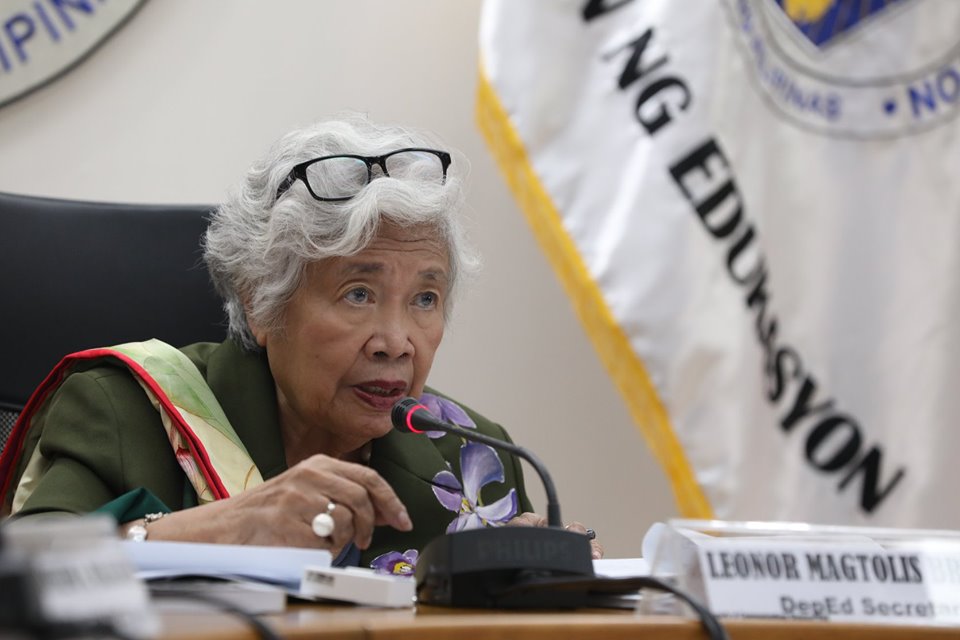News
Briones: ALS enrollees, grads increase under Duterte admin

Citing that increased enrollment and reduced dropout rate are indicators of the government’s success in making education accessible to all, Briones said the Department of Education (DepEd) is now focusing on the quality of education. (File photo: Department of Education – Philippines/Facebook)
MANILA — Education Secretary Leonor Briones said Friday the number of out-of-school youth and adult (OSYA) enrollees in the country has substantially increased under President Rodrigo Duterte’s administration.
During the launch of the “Duterte Legacy” campaign in Pasay City, Briones reported that the average number of OSYA enrollees under the Duterte administration is 57 percent higher compared to the past administrations because of its full support to the alternative learning system (ALS).
The ALS is a parallel learning system encompassing informal, non-formal, and indigenous as an alternative to the existing formal education.
“This is the first program he gave full support to when he assumed office. We have ALS programs in prisons, rehabilitation centers, in farms, in centers, and local government barangay halls, and a yearly average of 130,019 learners whose lives are improved by obtaining elementary and secondary diplomas through ALS,” Briones said.
She reported that 66 percent or 1,329,667 learners who enrolled between 2016 and 2018 have completed their learning objectives in the program and can now take the equivalency tests and proceed to higher education.
“Due to the policy reforms introduced to improve the reach and strengthen the quality of ALS, the yearly number of learners passing the ALS Accreditation and Equivalency Test increased significantly higher — 56 percent compared to the average number of passers per year from 2005 to 2015. Passing rates also improved from an average of 45 percent between 2005 (and) 2015 to 66 percent from 2016 to 2018,” she said.
Citing that increased enrollment and reduced dropout rate are indicators of the government’s success in making education accessible to all, Briones said the Department of Education (DepEd) is now focusing on the quality of education.
“We’re focusing on the Last Miles, the invisible schools. We have conducted an inventory of all these schools and we hope by the end of the Duterte administration, we will have attended to the needs of these last-mile schools and give them the same level of attention we give to our urban schools,” she said.
Through Sulong Edukalidad, Briones said the DepEd would review the K to 12 curriculum, improve the learning environment, teachers’ upskilling and reskilling, and engagement of stakeholders for support and collaboration to increase the quality of education nationwide.





















